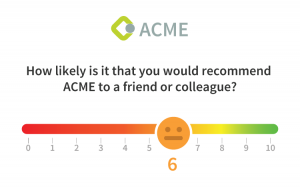Remote work is on the rise across the board, and for a good reason. But if you think your next Chief Marketing Officer executive search should be for a virtual leader, you should probably reconsider.
The Impact of the Digital Workplace on Marketing
In the U.S. alone, about 25 million professionals will work mostly or entirely from a remote location this year. It’s a growing trend across nearly all industries, in organizations of all shapes and sizes.
Faster, more reliable internet available to a wider audience means that most households are now capable of transforming into a virtual office with minimal investment. Virtual work is further enabled by the evolution of video conferencing, instant message platforms, secure document sharing, and a rapidly growing selection of collaboration and project management tools.
Marketing in particular is an especially viable field for work flexibility and remote contributions. Most marketing production today is digital, creative, strategic, or analytical–rarely anything that requires a physical presence or tangible output. As marketing recruitment consultants, we’ve placed a number of great marketing professionals on a remote basis ourselves.
In fact, greater adoption of telecommuting options, when applied and managed strategically, may ultimately improve the effectiveness and productivity of a marketing department. Consider:
- Work flexibility isn’t just a huge draw for top marketing talent, it’s becoming an expectation. As marketing recruitment consultants, we’re seeing more and more of marketing’s top performers valuing flexibility in where and when they work as much or more than salary. If you want to attract the best, you have to be able to offer what they want.
- All else being equal, remote marketing employees are cheaper to your business than those that report into a physical location every day. On-site staff need space: a workspace, break rooms, meeting areas, rest rooms, etc. You have to provide them with a desk, a phone line, office supplies, and more. And don’t forget other office perks: coffee, pizza day, birthday celebrations…the list goes on. No one of those things is particularly expensive–but they add up fast. A team member contributing virtually incurs far fewer costs (not to mention they’ll never be late due to traffic!).
- Opening your marketing department to remote work dramatically grows the potential talent pool. If the best candidate for a job is across the state or across the country, you no longer have to settle for a less-qualified marketer that happens to be nearby.
- The ability to work remotely can have a big impact on team morale and productivity. It’s a low-cost way to significantly add value and job satisfaction to your marketing staff. It’s also a great reward/incentive for team members that show themselves to be diligent and reliable. Remote workers are about twice as likely to love their job than their in-office counterparts. As job satisfaction increases, turnover costs shrink. And professionals working from home have lower rates of absenteeism.
The Implications for Marketing Executive Recruitment
It’s not hard to imagine a diligent social media marketer, copywriter, or analytics specialist effectively contributing from their home or a nearby coffee shop. But what about senior marketing leaders like the CMO? With all the new technology and management techniques emerging, could a marketing executive be just as effective virtually as on-site?
As a Chief Marketing Officer executive search firm, we frequently get asked by clients whether we recommend opening a search up to remote/virtual candidates.
Our answer as marketing recruitment consultants is almost always a definitive “No.”
The reality is that most marketing heads simply can not be fully effective when working away from the office full time. The downsides outweigh the benefits.
Our reasoning is simple. In most cases, a business’s marketing operations are concentrated in one place–often a single building or floor. That has the obvious advantages of fostering close collaboration and communication. But it also creates an environment ripe for groupthink and an “us vs them” mentality. Marketing leaders need an active, hands-on management style to feel the pulse of their department and keep their team oriented in the right direction.
A head of marketing that is physically removed from the team is too likely to be perceived as “out of touch” with the reality of their day-to-day work and challenges. Inevitably, resentment builds over time and productivity is lost.
Perhaps in the near future technology will mature to a point that empowers senior marketing executives to lead from a virtual location while remaining immersed in the culture and mindset of their team. But we’re simply not there yet.
The Exception to the Rule

Despite the obstacles, there is one situation where a CMO or other top marketing executive could foreseeably work on a remote basis without suffering the negative side effects listed above.
I previously described the typical scenario where a business’s marketing will be based mostly or entirely in a small number of locations. However, there are some situations where this is not the case. For instance, imagine a corporation comprised of several companies that were acquired around the world, or a growing startup that has been assembled mostly from remote employees from its inception.
In cases like these, the marketing team will already be dispersed across multiple locations. If your business’s marketing operations are spread across multiple geographically separate divisions and teams, then you’re less likely to face a problematic cultural difference that spirals out of control.
In that rare case, a CMO could potentially operate with comparable effectiveness almost anywhere–including the comfort of their own home.
Business & Finance Articles on Business 2 Community(89)
Report Post







